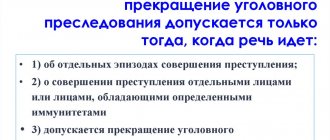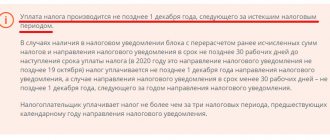Commentary to Art. 146 of the Criminal Procedure Code of the Russian Federation
Comments on the articles of the Code of Criminal Procedure will help you understand the nuances of criminal procedure law.
1. Criminal cases of public prosecution include cases provided for in Part 5 of Art. 20 of the Code of Criminal Procedure (see comments to this article).
2. The competence in resolving the issue of initiating a criminal case of public prosecution of the prosecutor, investigator and interrogating officer is different.
The prosecutor has the right to initiate a criminal case for any crime, with the exception of those prosecuted as private and private-public accusations. In cases provided for in Part 4 of Art. 20 of the Code of Criminal Procedure, the prosecutor has the right to initiate a criminal case of private-public and private prosecution (see commentary to Article 20).
3. The investigator, the body of inquiry and the interrogating officer initiate a criminal case with the consent of the prosecutor.
4. The decision to initiate a criminal case is made if there is a reason and basis for initiating a criminal case, if there is no information about the presence of any of the circumstances precluding criminal proceedings (see commentary to Article 24).
5. Violation of the procedure for initiating a criminal case in accordance with Part 2 of Art. 50 of the Constitution entails the recognition of all subsequent procedural actions as having no legal force.
6. The resolution to initiate a criminal case must contain the information provided for in Part 2 of the commented article. Structurally, it consists of introductory, descriptive and operative parts. On the forms of the resolution to initiate a criminal case and the resolution to initiate a criminal case and accept it for proceedings, see appendices 12 - 14 to Art. 476 Code of Criminal Procedure.
7. A criminal case is initiated both upon the commission of a crime and against a specific person (see commentary to Article 46).
8. A criminal case is initiated against a specific person in cases where the actual data of the crime indicate the commission of an act by this person (non-payment of alimony, information about a bribe, abuse of official position, etc.). In the Determination of the Judicial Collegium of the Armed Forces of the Russian Federation dated 02.28.2006 N 46-dp05-77 in the case of K. it was stated that court decisions in the case of abuse of official powers were left unchanged, since in order to initiate a criminal case on the grounds of crimes provided for in Part 2 of Art. . 285 and part 2 of Art. 286 of the Criminal Code, the identification of a specific official holding a public position who has committed abuse and excess is mandatory, and the initiation of a criminal case on the fact of abuse by an indefinite number of persons is illegal.
9. The decision to initiate a criminal case, made by the investigator or inquiry officer, is immediately sent to the prosecutor along with the materials specified in part 4 of the commented article. For the form of a resolution to refuse consent to initiate a criminal case, see Appendix 22 to Art. 476 Code of Criminal Procedure.
10. If the decision to initiate was made prematurely, based on insufficiently verified material and it is possible to carry out additional verification actions within the period established by law, the prosecutor returns the materials for additional verification in order to collect sufficient data to initiate a criminal case or justified refusal to do so. The period of such verification is no more than 5 days.
11. On the procedure for initiating a criminal case against a member of the Federation Council and a deputy of the State Duma, a deputy of a legislative (representative) body of state power of a constituent entity of the Russian Federation, a deputy, a member of an elected local government body, an elected official of a local government body, a judge of the Constitutional Court of the Russian Federation, a federal court judge general jurisdiction and some other persons, see comment. to Art. 448.
The conclusion of the judicial panel of the regional court on the presence of signs of a crime in the actions of a deputy of the regional Duma was changed with the exclusion from it of an indication of the elements of a crime and the inclusion of an indication of the elements of a crime, since the judicial panel erroneously gave a conclusion on the presence of elements of a crime, since the signs of a crime are a broader concept than signs of a crime (Definition of the Armed Forces of the Russian Federation dated June 30, 2005 N 72-o05-21).
Forms of criminal prosecution
The Criminal Code of the Russian Federation identifies three forms of criminal prosecution
- Public order. Authorized bodies initiate criminal proceedings on their own initiative. The consent of the injured party is not required. In this case, reconciliation of the participants in the process is not a reason to terminate the criminal proceedings.
- Private-public policy. The process is initiated by the victim. If for some reason a citizen cannot file a complaint on his own, his legal representative does so instead. The trial may continue even after the parties have reconciled.
- Private order. The proceedings are initiated by the victim. Reconciliation of the parties is one of the grounds for termination of the case.
After the initiation of a criminal case, the materials are sent to the prosecutor to determine jurisdiction. If there are compelling reasons, the case is allowed to proceed.
Reasons for excitement
Initiation of a criminal case as a stage of the criminal process is an integral, priority part of a set of measures aimed at restoring justice, in particular punishing those guilty of committing illegal actions dangerous to society. Having understood that the first stage is the initiation of a criminal case, it is necessary to consider in detail the reasons for the execution of this action by the responsible persons.
Such reasons include sources of information about the commission of illegal actions. They are perceived by the law as a legal fact. According to Article 140 of the Code of Criminal Procedure of the Russian Federation, there are only 4 reasons:
- a statement about the commission of a crime or its preparation;
- confession of the person who committed the criminal act;
- a message about the commission of illegal actions received from any other sources;
- resolution of a prosecutor's office to send materials to the competent authorities to resolve the issue of possible prosecution.
The initiation of a criminal case in the Code of Criminal Procedure of the Russian Federation is given quite a lot of importance. In this regard, it is necessary to consider all possible reasons in more detail.
Statement about the commission of a crime or its preparation
Allegation of illegal actions is the most common reason. This action means notifying the competent authorities about the commission of illegal actions, regardless of whether the applicant was injured or not. The application can be made either orally or in writing. The written application must be signed by the applicant.
An oral statement about the commission of illegal actions or preparation for their implementation is recorded in the protocol, which must be signed by the applicant and the person who received the message. In addition, the protocol must contain information about the applicant, confirmed by an identification document.
A person who decides to report the commission of a crime or preparation for it is warned in advance that, according to Article 306 of the Criminal Code of the Russian Federation, a false denunciation is also an illegal act. This information is recorded in the document and confirmed by the signature of the applicant.
It should be noted that criminal acts can also be reported anonymously. Such a statement is not a cause for concern. In such a situation, only verification of information received anonymously is allowed.
Confession
Such a reason is a person’s confession to a responsible law enforcement officer that he has committed illegal actions. Confession is characterized by the presence of two mandatory features:
- voluntariness;
- indication of their criminal acts.
A confession can be made orally or in writing. The oral statement is recorded in the protocol in accordance with the standards established by Part 3 of Article 141 of the Code of Criminal Procedure.
Reporting illegal activities
This reason is various information about illegal acts that was obtained by officials in the process of performing their official functions. This type of reason includes reports in the media and other sources about a crime that has already occurred or is just being prepared.
Such messages are not addressed to competent employees of the inquiry or investigative bodies. However, they must be checked to ensure that the information they contain is accurate. The official who discovers signs of a crime must draw up a report. This document serves as the basis for initiating proceedings. This issue is regulated by Article 143 of the Code of Criminal Procedure.
A prosecutor's decision may serve as a basis for initiating criminal proceedings in cases where an official has identified criminal acts in the course of performing his duties. This also needs to include acts and reports drawn up as a result of personal observation by a prosecutor’s office employee.
An example of such a reason could be a prosecutor’s inspection of an enterprise, organized based on statements from its employees. If punishable violations were identified during the inspection, the prosecutor must write a corresponding resolution and submit it to the investigative authorities. This will be a reason for excitement.
Conducting investigative activities
The duration of the preliminary investigation is 2 months from the beginning of the case. This is stated in Article 162 of the Code of Criminal Procedure of the Russian Federation. An increase in the period is possible in the following cases:
- up to three months, subject to a corresponding decision from the head of the investigative agency;
- if difficulties arise during the implementation of investigative measures, the process can be extended up to a year;
- in rare cases, the investigation can last more than a year (the initiators of the extension are the heads of investigative departments and chairmen of investigative bodies of the Russian Federation).
All measures taken during the preliminary investigation must be recorded in the protocol.
Let us consider the stages of investigative measures in more detail:
- After the initiation of a criminal case, a preliminary investigation is conducted aimed at collecting evidence.
- The accused is identified. An appropriate resolution is issued, which must contain the date and place of creation of the document, as well as the personal data of the accused, indicating the crime he committed.
- Within three days after the formation of the resolution, the accused must be notified of his participation in the process. Next, the alleged criminal is placed under arrest or summoned for questioning.
- The accused is charged and his rights are read. The procedure is carried out in the presence of a lawyer. Next, the accused must sign the resolution. In case of refusal, a corresponding mark is placed on the document.
- Evidence is being collected to support the prosecution's position. We are talking about witness testimony, the results of examinations and investigative measures.
- An indictment is drawn up.
- The next stage of paperwork is initiated.
Without notice
Proceedings may begin without notification if the fraud was discovered not on the basis of a statement from the victim, but due to other circumstances. This includes messages from social activists or other organizations, articles in the media, letters about crimes being prepared or committed, facts discovered during investigative actions, and so on.
The prosecutor's office has the right to initiate a case without notifying the victim, and when he is in a state incapable of realizing what is happening, or for other reasons cannot defend himself.
The basis for starting appropriate proceedings may also be the results of the operational actions of investigators. Then the management makes a decision and sends the results to the investigative or court authorities.
If facts of fraudulent schemes are discovered in the course of official activities, then the peculiarity of the official’s actions is that he submits a report. It sets out all the circumstances in the same way as in the application.
https://youtube.com/watch?v=rvWZ-ub3fps%3Ffeature%3Doembed
Stages of initiating a case: their meaning and concept
Initiating a case of a criminal offense includes three concepts, considered from different legal positions:
- In the field of legal theory, the initiation of a case is a criminal procedural institution, which is a set of norms of a criminal legal nature that regulate legal relations that arise in the process of receiving, registering, researching and resolving reports of criminal offenses.
- In the field of law enforcement, the initiation of a case is a decision that is made by the relevant official in the form of a resolution that completes the consideration of an application for a committed or planned crime. Also, the initiation of a case is a legal fact that means the beginning of an investigation into a criminal offense.
- In the field of judicial law, the initiation of a case is the initial stage of criminal proceedings, which is characterized by the independence of the assigned tasks, procedural methods and means, decisions and deadlines.
How to initiate a criminal case for fraud
To open a case, the injured party must write a statement to the police. This is the basis for conducting an inspection. If signs of a crime are revealed during the investigation, the investigator must open a case. The statement may contain information about an act committed or being prepared. In it you must write your personal information, as well as details of fraudulent manipulations that have become known to the applicant. After accepting the application, the person is given a coupon indicating the time, a unique number and information about the person who accepted the application.
https://youtube.com/watch?v=ioGV15mUE_I%3Ffeature%3Doembed
Procedure for initiating a criminal case
Integral elements of the investigation stage before the decision is made are the reasons, grounds and procedure for initiating a criminal case. Checking the reasons and searching for the basis will be useless if the procedure for initiating the case is not followed.
Article 146 of the Code of Criminal Procedure defines the elements that must be in the resolution (place and date of preparation, full name and position of the employee, the reason under consideration, the basis for the investigation, the qualification of the crime).
The drawn up resolution and case materials are subject to immediate transfer to the prosecutor for approval. After checking, the prosecutor gives his consent to open a case or refuses it due to shortcomings in the investigation. To eliminate these inaccuracies, the official is given no more than five days.
Entity
The most popular ways of fraudulent activities carried out by legal entities. persons is a pyramid where they promise to get a lot of money in order to provide for themselves for a long time. The scheme is aimed at attracting a large number of people, and therefore the illegal income from it is high.
The lion's share of the profit goes to the accounts of the first participants, while the rest only make deposits and hope for further profits. Article 159 of the Criminal Code of the Russian Federation, according to which criminals are subject to punishment, contains the following compulsory measures against them.
- A fine of up to one million rubles.
- Imprisonment for a term of six to ten years.
In this case, correctional labor is not considered as a punishment.
Whatever fraudulent schemes are used by a legal entity, it cannot be held criminally liable. Only individuals are punished for crimes committed. Each person must bear the punishment provided for in the article of the Criminal Code of the Russian Federation for which he was held accountable.
Legal practice
The provisions of the article in question are applicable to all cases. Thus, there are many examples of the application of this norm in practice. Here are just a few of them:
- On March 15, 2017, investigator N. registered a statement about theft from a large warehouse of household appliances. The essence of the matter was that there were traces of penetration and removal of goods. Representatives of the injured party could not say for sure whether something was stolen without an audit or not. Thus, the deadline for making a decision was extended to 10 days.
- On April 19, 2017, investigator I. accepted a statement in which it was reported that citizen M. suffered bodily injuries as a result of a fight. After an inspection, it was determined that the damage was mild. Thus, the case belongs to the private prosecution sector.
- On November 8, 2017, one of the newspapers reported the deliberate arson of a building located on a summer cottage. Police officer K. drew up a report, which became the basis for an inspection and subsequent initiation of a case.
Most often the reason is a statement. Such messages are checked as carefully as possible.
What decisions can be made?
There are several possible options:
- a case is initiated;
- a refusal to initiate is formed due to the absence of signs of an illegal action;
- the application and accumulated materials are forwarded to the body with the appropriate jurisdiction;
- the period for making a decision on the application is extended from 3 to 30 days.
According to statistics, the most common is the first option.
Why should a decision on a message be made as quickly as possible?
It was not for nothing that the legislator set the period of 72 hours. If it is extended, the criminal will have time to “cover his tracks” or accomplish what he planned.
The practice of extending inspection deadlines is not encouraged. Regular extensions of deadlines may become a subject of interest for regulatory authorities to a representative of the criminal prosecution authorities.
Cases on private charges
The peculiarity of initiating cases of this type is that the reason for initiating a criminal case is solely a statement addressed to the magistrate from the injured citizen or his representative.
If, due to objective reasons (state of helplessness), the victim cannot protect his legitimate interests, the case is initiated by the prosecutor. In this case, the prosecutor transfers the case to carry out the preliminary stage of the investigation.
A peculiarity of such cases is the impossibility of concluding a settlement agreement due to Article 318 of the Code of Criminal Procedure. If the reasons and grounds verified at the preliminary stage are confirmed, the magistrate takes over the case.
Initiating a criminal case goes through several stages before working with the suspect. Allowing violations at one of the stages will lead to the impossibility of bringing the perpetrator to justice.
Comments on the article
The most significant comments on the article in question are:
- The article in question regulates the preliminary verification of a report of an unlawful act related to cases of private, private-public and public accusation.
- The responsibility to receive, register and verify messages is assigned to the criminal prosecution authorities, namely inquiry and investigation, as well as the heads of these structures. At the same time, in a number of cases, any employee of the Ministry of Internal Affairs who is on duty has the right to accept a message.
- The application must be accepted regardless of the type of illegal act, its severity, time and place of commission. If during the inspection it turns out that the illegal action is not within the jurisdiction of a specific body, then all materials must be forwarded to officials or structures of the Ministry of Internal Affairs having the appropriate competence.
- Any report of a crime is registered accordingly. As a rule, registration consists of issuing a special stamp indicating the registration number and date of receipt. The applicant is issued a coupon.
- The application is verified taking into account the rules listed in Article 87 of the Code of Criminal Procedure. An investigator or inquiry officer does not have the right to conduct an inspection without registering a report.
- The review must be completed within 72 hours. Upon completion, the official can make several decisions: initiate a case, refuse to initiate it, redirect the case materials to the body that has the appropriate jurisdiction. In the latter case, the calculation period of 72 hours begins anew.
- The fact that the media disseminated a report about a crime is not a reason to initiate a case. This message must be detected by a representative of the prosecuting authority and documented in a report. It is he who is considered the reason for excitement. The reason may also be a decision of the prosecutor who discovered such a publication in the media.
The timing of the preliminary inspection may be increased if there are substantiated justifications that it is impossible to carry out all the required actions within 72 hours.
- An extension of the period to 30 days is permissible only if there is data that confirms the need for inspections, audits and various studies. An unreasonable extension of the deadline leads to a change in the stage of initiating a case and the preliminary investigation, which is unacceptable. If the verification period has expired, but no signs of a crime have been identified, then a case should be initiated based on the availability of probable data. An untimely decision to initiate a case leads to concealment of a criminal act from accounting.
- An investigator or inquiry officer has the right to refuse to accept a case only if it is a private accusation.
- Applications are filed in court, but this does not mean that the applicant does not have the right to contact the police. The fact is that the applicant or his representative may incorrectly determine the classification of the crime. In turn, the investigator or inquiry officer does not accept the case for his own proceedings, but forwards it to the bodies of the magistrate.
The presence of a huge amount of information in Art. 144 is the reason that new comments appear on it regularly. In particular, this is affected by the wording of the article itself and related norms.
Who does not have the right to initiate criminal proceedings
Some officials directly involved in criminal cases do not have the right to initiate investigative measures. We are talking about the following specialists:
- on-duty police officers who receive complaints from victims;
- private prosecutors and victims' lawyers;
- detectives whose task is to carry out investigative activities;
- judges who do not have such powers.
Initiation of a criminal case against private charges, Article 318 of the Code of Criminal Procedure of the Russian Federation
One of the features of criminal cases of private prosecution is that, as a general rule, criminal prosecution cannot be carried out without the voluntary expression of the will of the victim. The exception is cases when a crime is committed against a person who is in a state that deprives him of the opportunity to independently defend his rights and legitimate interests (dependence on the accused, helpless state, etc.). Then a criminal case of private prosecution can be initiated by the prosecutor, as well as by the investigator or inquiry officer with the consent of the prosecutor (Part 4 of Article 20 of the Code of Criminal Procedure of the Russian Federation). In these cases, a criminal case is initiated even in the absence of a statement from the victim (Part 3 of Article 21 of the Code of Criminal Procedure of the Russian Federation).
1. Criminal cases regarding the crimes specified in Part 2. Art. 20 of the Code of Criminal Procedure of the Russian Federation (cases of crimes provided for in Article 115 “Deliberate infliction of slight harm to health”, Article 116 “Battery”, part 1 of Article 129 “Slander” and Article 130 “Insult” of the Criminal Code of the Russian Federation), are initiated by filing the victim or his legal representative makes an application to the magistrate.
2. The application must contain:
1) the name of the court to which it is filed;
2) a description of the crime event, place, time, as well as the circumstances of its commission;
3) a request addressed to the court to accept the criminal case for proceedings;
4) information about the person brought to criminal liability;
5) a list of witnesses who must be summoned to court;
6) signature of the person who submitted it.
The application must sufficiently fully reflect the circumstances of the conflict that occurred, as well as evidence that supports the applicant’s arguments. This is necessary so that the judge has the opportunity to give a correct legal assessment of the actions of the persons indicated in the application, decide the issue of jurisdiction of the dispute, accept the criminal case for his proceedings and organize its further consideration. The application is submitted to the court with copies according to the number of persons against whom a criminal case of private prosecution is being initiated.
3. In the event of the death of the victim, a criminal case is initiated by filing an application by his close relative. Close relatives include: spouse, parents, children, adoptive parents, adopted children, siblings, grandparents and grandchildren (Clause 4 of Article 5 of the Code of Criminal Procedure of the Russian Federation). In this case, a criminal case can also be initiated by the prosecutor. After this, it is sent for a preliminary investigation in the form of an inquiry (clause 1, part 3, article 150 of the Code of Criminal Procedure of the Russian Federation).
4. A criminal case may be initiated by the prosecutor in cases where the victim, due to a helpless state or for other reasons, cannot defend his rights and legitimate interests. In this case, the prosecutor sends the criminal case for preliminary investigation. The entry of a prosecutor into a criminal case does not deprive the parties of the right to reconciliation.
5. From the moment the court accepts the application for its proceedings, the person who filed it is a private prosecutor. The rights provided for in Articles 42 and 43 of this Code must be explained to him, about which a protocol is drawn up, signed by the judge and the person who filed the application.
6. In accordance with Part 1 of Art. 42 of the Code of Criminal Procedure of the Russian Federation, the decision to recognize a victim is formalized by a resolution of the inquiry officer, investigator, prosecutor or court. The form of the corresponding decision of the magistrate in the appendices to Art. 477 of the Code of Criminal Procedure of the Russian Federation is not contained. Since, by virtue of Part 7 of the commented article, the rights of the victim and the private prosecutor are explained to the person who filed the application simultaneously with the judge accepting the application for his proceedings, a special ruling on recognition as a victim is not required.
7. It appears that the magistrate is obliged to explain to the applicant not only the rights of the victim and the private prosecutor, but also their obligations under Art. 42 and art. 43 of the Code of Criminal Procedure of the Russian Federation, including liability for refusal to testify and knowingly false testimony.
8. In accordance with Part 3 of Art. 249 of the Code of Criminal Procedure of the Russian Federation, the failure of the victim to appear without good reason in cases of private prosecution entails the termination of the criminal case due to the absence of corpus delicti in the act (Clause 2, Part 1, Article 24 of the Code of Criminal Procedure of the Russian Federation). In this case, the magistrate makes a decision to terminate the criminal case due to the private prosecutor’s refusal to charge (see Appendix 42 to Article 477 of the Code of Criminal Procedure of the Russian Federation). It seems that this provision should also be explained to the applicant.
9. A victim in a criminal case of private prosecution, if he fails to appear when called by a judge without good reason, cannot be brought in. Regulations of Part 6 of Art. 42 of the Code of Criminal Procedure of the Russian Federation does not apply to him.
Features of public prosecution cases
In accordance with Art. 146 of the Code of Criminal Procedure of the Russian Federation, criminal cases of public prosecution have the right to initiate:
- investigator;
- head of the investigative body;
- interrogator;
- inquiry body;
- captains of river and sea vessels;
- leaders of wintering camps and geological exploration parties;
- heads of seasonal field bases and Antarctic stations;
- heads of consular offices and diplomatic missions of Russia.
Competent officials must accept all reports of crime. But they can initiate criminal cases exclusively within their competence and only with the consent of the prosecutor .
This is one of the innovations of the Criminal Procedure Code as amended on September 1, 2016. This rule was introduced to prevent the groundless and unlawful initiation of a criminal case.
These persons must issue a resolution to initiate a criminal case , which indicates:
- time, date and place of delivery;
- by whom it was compiled;
- the basis or reason for initiating a criminal case;
- article of the Criminal Code on the basis of which the case is initiated.
A copy of the decision must be immediately sent to the prosecutor. He decides whether to initiate a case or not. His decision can be appealed in accordance with the procedure specified by law.
Initiation of a criminal case, grounds, terms
In the third option (transfer of an application according to jurisdiction or jurisdiction), the subjects of this right can send materials on a specific case to the appropriate body, whose competence includes the consideration and subsequent resolution of the received application (report) about an unlawful act dangerous to society. For example, if a crime is committed by a military serviceman, a police officer who receives a report of this incident is obliged to first register it, take appropriate measures aimed at preserving traces of the crime, and then forward the case to the military prosecutor’s office.
What are the deadlines for initiating a criminal case?
- Reporting a crime. A statement made orally or in writing identifying the applicant. In Art. 141 of the Code of Criminal Procedure directly states that an anonymous statement cannot serve as a reason for initiating a case.
- Confession. A voluntary statement by a person about a socially dangerous unlawful act he has committed, drawn up in the established manner (or a written statement indicating the applicant, or a protocol drawn up from the words of the applicant and signed by him). Confession is a basis that can serve to mitigate punishment.
- A message about a crime committed or about to be prepared, which was received from other sources. In this case, a report is drawn up.
- Prosecutor's decision to forward certain materials to the preliminary investigation body. Such action is required in order to resolve the issue of persecution.
Confession of the offender
The next reason for initiating a criminal case is the voluntary appearance of the offender to law enforcement agencies for the purpose of reporting a crime he is planning or has committed. The application must be addressed to the investigator, inquiry officer or prosecutor. The communication by a criminal of the specified information to a person who is not related to law enforcement agencies is not considered a reason.
Mandatory features of this type of reason for initiating a criminal case are voluntariness, as well as the content in the message of accurate data about the criminal actions committed by this person. In this regard, a citizen’s confession of carrying out illegal actions during interrogation is not considered a voluntary appearance.
Individual
As for crimes committed by individuals, the most popular of them is telephone fraud, through which information about bank cards is stolen. In this case, subscribers need to be doubly careful, since in the end they risk losing not only the money on the card, but also on the phone account.
In this case, an SMS is sent to the number, for example, that his card is blocked or the loan has been approved by the bank. The SMS contains a number which, as it is written, is used for customer service.
A concerned cardholder calls this number without thinking about the consequences. There he receives instructions in automatic mode about certain actions. After some time the call ends on its own. As a result, it turns out that the number is highly paid, and a considerable amount is debited from the subscriber’s account. Instead of a message, the victim may receive a call from an alleged representative of the bank, who will inform that in order to unlock the card, you need to get its number, code and telephone number that is tied to it. If the victim provides this information, the fraudster will carry out his criminal intent and the money will disappear.
The Criminal Code provides for the following types of punishment in relation to such schemes:
- penalties of up to 120 thousand rubles;
- public works for up to 180 thousand hours;
- correctional labor for up to 12 months;
- imprisonment for up to 24 months;
- arrest for up to 4 months.
Various occasions
There are also specific reasons for starting UD. We are talking about sources of information about an offense that are established by procedural law. There is a specific list of reasons, which is specified in Article 140 of the Code of Criminal Procedure of the Russian Federation.
List:
- Reporting a crime. This reason is considered the most common. It is enough for the investigator to begin his work.
- Confession. It is possible only from the person who committed the offense. Moreover, if a person has already been detained, turning himself in will become impossible.
- A report of a criminal act that has already been committed or is being prepared. In this case, the applicant is not required to be a participant or victim of a crime. The source can be anyone, and the police are required to verify the report to determine whether misconduct has occurred.
- Prosecutor's decision on sending materials for preliminary investigation.
We have figured out that any of the points described above is a sufficient reason to initiate a UD. But you will also need reasons, the significance of which we will consider below.
What Internet services to use
There are many services on the Internet that promise to provide access to databases of various legal information. They promise to help with the answer to the question of how to find out whether a criminal case has been opened. However, it must be borne in mind that the quality of information on such resources is quite questionable.
Regarding open data, it is better to use government services. For example, the State Automated Information System “Justice” resource allows you to find out information about a court hearing.
But there is no information about criminal cases on such portals. It will not be possible to find them out through the website of the Ministry of Internal Affairs. Moreover, even if you contact the police department in person, not everyone will be given such information. This information is confidential and is disclosed only to the participants in the case.
Therefore, you need to be careful with sites that promise to provide information about criminal cases. In most cases, these are resources of scammers. Especially if they ask for money for access to the database.







